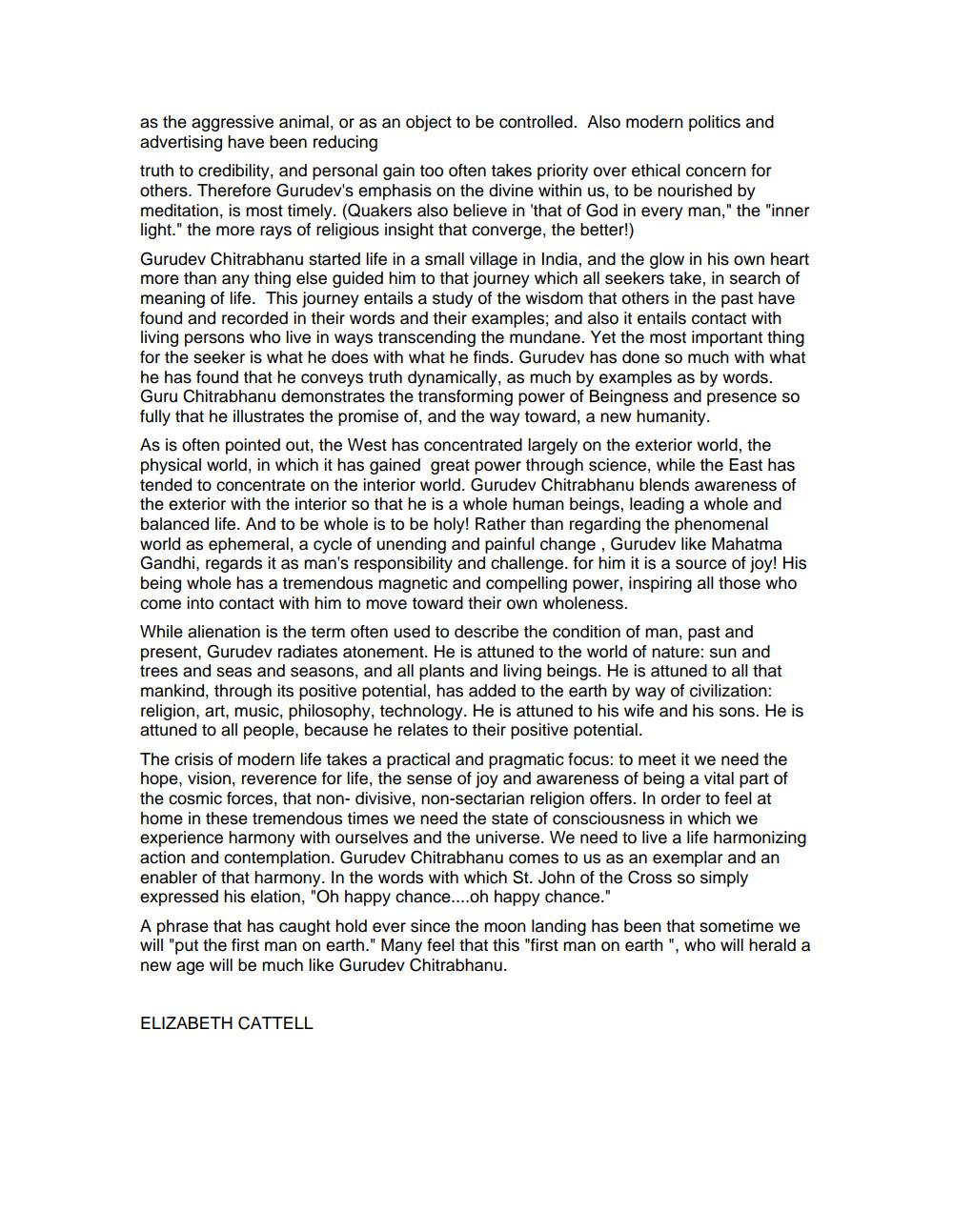________________
as the aggressive animal, or as an object to be controlled. Also modern politics and advertising have been reducing truth to credibility, and personal gain too often takes priority over ethical concern for others. Therefore Gurudev's emphasis on the divine within us, to be nourished by meditation, is most timely. (Quakers also believe in 'that of God in every man," the "inner light." the more rays of religious insight that converge, the better!) Gurudev Chitrabhanu started life in a small village in India, and the glow in his own heart more than any thing else guided him to that journey which all seekers take, in search of meaning of life. This journey entails a study of the wisdom that others in the past have found and recorded in their words and their examples: and also it entails contact with living persons who live in ways transcending the mundane. Yet the most important thing for the seeker is what he does with what he finds. Gurudev has done so much with what he has found that he conveys truth dynamically, as much by examples as by words. Guru Chitrabhanu demonstrates the transforming power of Beingness and presence so fully that he illustrates the promise of, and the way toward, a new humanity. As is often pointed out, the West has concentrated largely on the exterior world, the physical world, in which it has gained great power through science, while the East has tended to concentrate on the interior world. Gurudev Chitrabhanu blends awareness of the exterior with the interior so that he is a whole human beings, leading a whole and balanced life. And to be whole is to be holy! Rather than regarding the phenomenal world as ephemeral, a cycle of unending and painful change, Gurudev like Mahatma Gandhi, regards it as man's responsibility and challenge. for him it is a source of joy! His being whole has a tremendous magnetic and compelling power, inspiring all those who come into contact with him to move toward their own wholeness. While alienation is the term often used to describe the condition of man, past and present, Gurudev radiates atonement. He is attuned to the world of nature: sun and trees and seas and seasons, and all plants and living beings. He is attuned to all that mankind, through its positive potential, has added to the earth by way of civilization: religion, art, music, philosophy, technology. He is attuned to his wife and his sons. He is attuned to all people, because he relates to their positive potential. The crisis of modern life takes a practical and pragmatic focus: to meet it we need the hope, vision, reverence for life, the sense of joy and awareness of being a vital part of the cosmic forces, that non- divisive, non-sectarian religion offers. In order to feel at home in these tremendous times we need the state of consciousness in which we experience harmony with ourselves and the universe. We need to live a life harmonizing action and contemplation. Gurudev Chitrabhanu comes to us as an exemplar and an enabler of that harmony. In the words with which St. John of the Cross so simply expressed his elation, "Oh happy chance....oh happy chance." A phrase that has caught hold ever since the moon landing has been that sometime we will "put the first man on earth." Many feel that this "first man on earth ", who will herald a new age will be much like Gurudev Chitrabhanu.
ELIZABETH CATTELL




